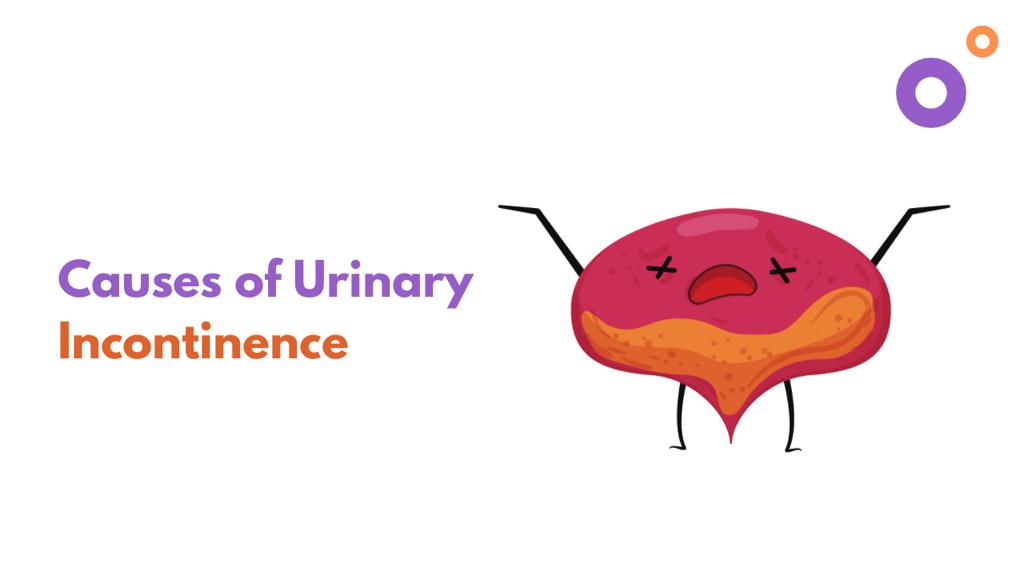
Causes of Urinary Incontinence
Medically reviewed by
Dr. Yogesh Taneja
Urologist, General Surgeon
Causes of Urinary Incontinence Urinary incontinence can happen to anyone; this is the involuntary leakage of urine due to loss of bladder control; an embarrassing issue for many older adults and women. Urinary incontinence is more common among females than in males. This is observed among women who have given birth; gone through menopause, suffer from obesity and urinary tract infections (UTIs), pelvic floor disorders and an enlarged prostate.
Different types of incontinence
There are several different types of incontinence characterized on basis of cause, characteristics and triggers for urine leakage. Knowing the type of incontinence helps in diagnosis and treatment for incontinence.
Urge incontinence
is characterized by an intense need to urinate immediately, caused by an overactive bladder (OAB), which is due to weak pelvic muscles, nerve damage, an infection, low levels of estrogen post menopause or obesity.Stress incontinence is
when you leak urine during activities like laughing, coughing, sneezing, running, jumping or lifting things as these activities puts pressure on the bladder and due to the weak pelvic floor muscles one leaks urine. Women who have given birth and men who have had prostate surgery suffer from stress incontinence.
Overflow incontinence
happens when the bladder doesn’t empty totally on urination; small amounts of urine drips out over time. This is common in people with chronic conditions like multiple sclerosis (MS), stroke or diabetes or men with a large prostate.Mixed incontinence
can be due to stress and an overactive bladder. Pay attention to identify triggers as to why you have leakage issues.CAUSES
The incontinence is a leakage of either as a constant dripping of urine or an occasional leakage.
Temporary or short-term causes are:
● Urinary tract infections (UTIs) this can cause pain and increase your urge to pee often.
● During pregnancy the uterus (when the baby grows) places extra pressure on the bladder as it expands and post delivery the incontinency goes away.
can be a side effect of certain medications, like diuretics and antidepressants.
● Incontinence can be a side effect of certain medications, like diuretics and antidepressants..
● There are certain beverages like coffee and alcohol — that can make urinate much more often. Chronic constipation can cause bladder control issues.
Chronic or long-term causes are:
• Pelvic floor disorders can impact the way bladder function.
• A stroke can cause weaken the muscles that control your urinary system.
• Your body produces more urine when you have diabetes; besides this due to peripheral neuropathy the bladder’s function is affected.
• Menopause is change in a woman’s body when hormone levels change rapidly and pelvic floor muscles become weaker.
• If you have Multiple sclerosis (MS) you may experience a loss of control with your bladder, leading to leakage issues.
• Enlarged prostate or benign prostatic hyperplasia or BPH causes several bladder control issues
• After prostate cancer surgery the sphincter muscle can sometimes be damaged leading to stress incontinence.
DIAGNOSIS AND TESTS
Often, the diagnosis process for incontinence begins by the taking of your medical history (please list your medications because they may be the cause for incontinence). Answer questions about past pregnancies and the details of incontinence of bladder control issues.
Several specific tests may be done for the diagnosis of incontinence, including:
Physical exam, urinalysis, ultrasound of bladder, stress test and Urodynamic testing. Besides this you will be asked to keep a journal for keeping track of any leakage over a few days to identify a pattern and help in the diagnosis. Visit us to resolve the problem.